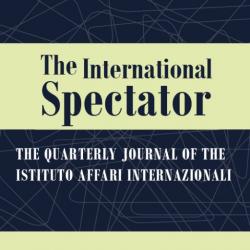Governing Complexity in Complex Times: The HDP Nexus and the Role of the UN, the EU and the World Bank

Based on the work conducted with a Nexus-centred network of scholars and practitioners (HDP LAB SYNEX4 Future), an overview is offered of the literature on regime complexity to analyse origins and evolution of the Triple Nexus multilateral approach to the governance of compound humanitarian-development-security crises. The identification of the main institutional features of the UN-orchestrated Nexus policy concept highlights its potential as an innovative attempt at global experimentalist governance. This analysis of the nexus-based approach of the United Nations (UN), the European Union (EU) and the World Bank Group (WBG) in three pilot countries – Cameroon, Myanmar and the Democratic Republic of Congo (DRC) – demonstrates that, while coordination has increased, the agency of local communities remains limited and major impediments hinder the inclusion of the peace dimension, an area where separate initiatives by non-Western regional organisations have also stalled. Progress will necessarily depend on the ability of Nexus actors to develop its bottom-up and participatory components, and to improve coordination within the group of like-minded donors who share a clear commitment to a human rights-based, inclusive and prosperous future.
Keywords: regime complexity; Triple Nexus; UN; EU; World Bank Group
-
Dati bibliografici
The International Spectator, Vol. 59, No. 3, September 2024, p. 21-41 -
Numero
59/3 -
ISBN/ISSN/DOI:
10.1080/03932729.2024.2376041



